The consumer is astonishing.
I don’t love the word “consumer,” by the way – even though I use it a million times a day. It oversimplifies, even objectifies, people. It conjures a visual of everyone just shoving Doritos in their mouths, staring at screens, and walking out of Walmart with a dozen plastic bags dangling from their arms. It’s the image Europeans hold of a stereotypical American.
In reality, we do much more than consume. We think, we feel, we give, we produce.
Alas, “consumer” is convenient professional shorthand, like voter, user, worker, or patient. I enjoy companies like Dick’s Sporting Goods, who refer to their customers as “athletes;” Target, as “guests;” or, casinos, as “players.” Indeed, we are different things to different people in different contexts.
Right now, the word “consumer” is apt.
Americans’ spending yet again blew away estimates last month, bucking expectations that our years-long spree was nearing its end. Some prognosticators are prognosticating that holiday retail sales will be up double digits over last year (our views are more conservative).
All of this is happening in a climate otherwise indicative of spending pullbacks. You know the story. Above-ideal inflation, on top of already-higher prices. Rising credit card debt, credit defaults, and 3X higher interest rates. Student loan payments returning and childcare benefits sunsetting. The big banks are telling us that all our pent-up COVID-era cash reserves are gone. All of it’s very real.
And it’s not like people aren’t consciously feeling these things – economic sentiment has been plummeting for months. Buy now, pay later services – i.e., retail mortgage – are way up.
We’ve explained, ad nauseam, why these conditions are clashing. Americans spent the last three years trying to refill our emotional tanks, left empty by the trauma of a pandemic, political discord, and – ironically – economic uncertainty. We’re still doing it, as you’ll see in the blurb below about luxury beauty products and “shopping as an expression of self-care.”
I’m not gonna lie. The whole thing is beginning to make me uneasy. And I’m usually the optimistic one.
News headlines are celebrating the consumer’s resiliency the way I might celebrate my ability to still day-drink like a college kid on a rare occasion. Both ignore the inevitable hangover, which gets progressively worse the more miles we’ve logged.
It’s hard to see how it can all end well. Another prolific, defiant holiday retail season is likely to leave Americans with painful credit card bills, not to mention hefty home heating costs, come January.
If you can explain how we get to a happy ending, I’m all ears.
Here’s what we’re seeing:
People are glued to the Israel-Hamas war. In our 3 Things to Know this week, we found that 81% of U.S. adults are paying close attention to the crisis in Israel – although younger people, much less so. We also found that 1 in 3 U.S. holiday shoppers plan to spend less this year than they did last year, with that percentage growing, literally, by the week (hence our less rosy – albeit flat –- expectations for retail). Finally, it seems hopes of improved body positivity in our country have a long way to go, especially among my fellow Gen Xers.
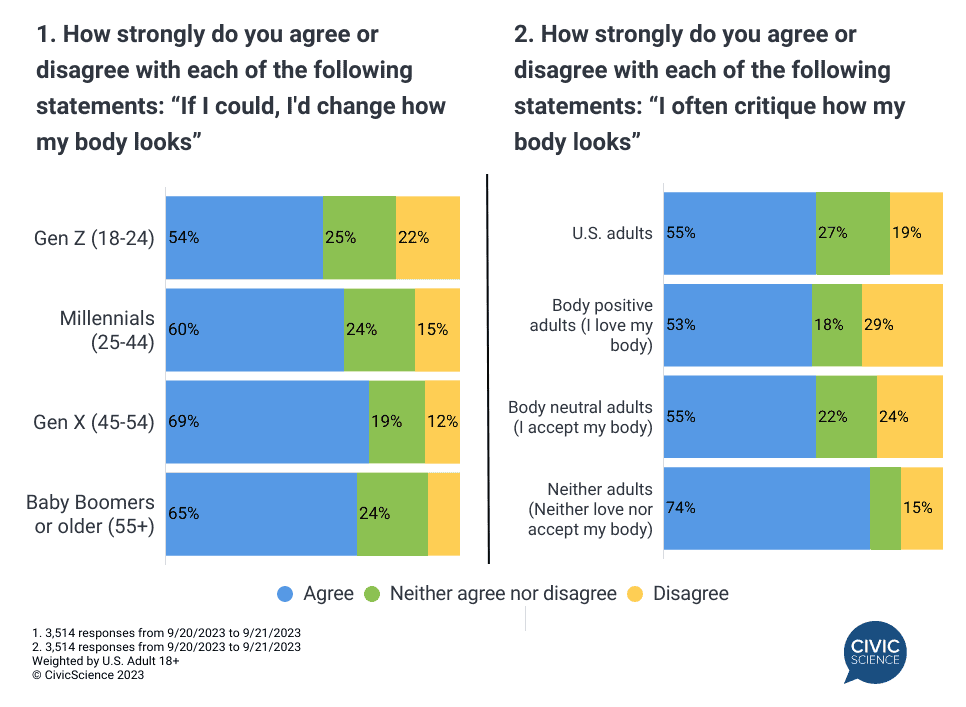
Watch out for Temu this Christmas season. Whatever misgivings Americans have about China don’t seem to dissuade them from using their social networking apps or e-commerce platforms. Temu, the Chinese-owned discount e-retailer, is taking the country by storm. In March, just 36% of U.S. adults had even heard of Temu – today, that number is up to 72%. One in five Americans have made a purchase on the platform and another 13% are planning to. Amazon could take the biggest hit – the crossover between users is significant.
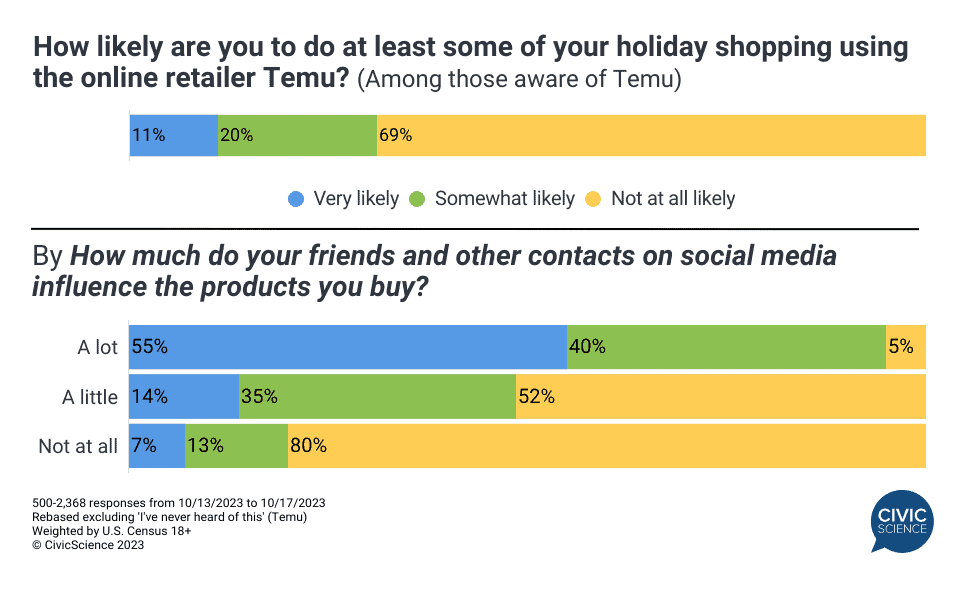
Luxury and prestige beauty buyers are still giving the economy the middle finger. Bucking every ounce of economic conventional wisdom, the upscale beauty industry has continued to thrive through all the ups and downs of the pandemic, supply chain disruptions, and inflation. Even today, two-thirds of beauty consumers say they’re likely to buy at least one luxury product, with fragrances and facial skincare sitting at the top of the list. Gen Z is particularly fond of celebrity-owned brands like Kylie Cosmetics or Rihanna’s Fenty. Ever in pursuit of emotional wellness, 83% of luxury beauty buyers say they regularly splurge on themselves. Thirty percent view shopping as a form of self-care.
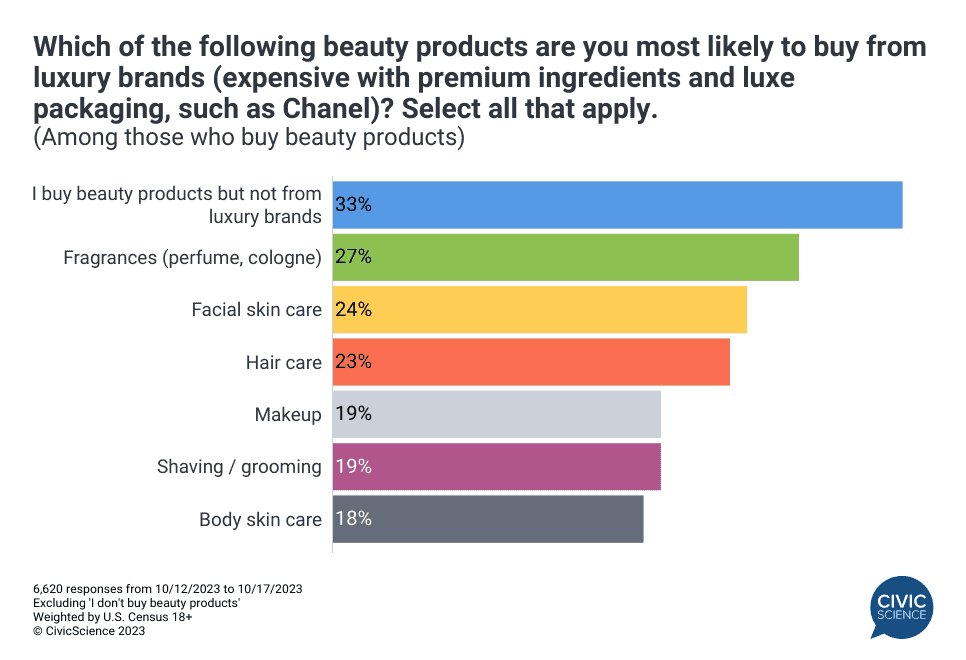
Cybersecurity concerns keep climbing. A whopping 90% of Americans say they’re at least somewhat concerned about their personal data being compromised or hacked, with a record 41% who are “very concerned.” It’s negatively impacting all manner of online commerce, with over half of U.S. adults saying they avoid clicking on digital ads because of cybercrime worries. Concerns are highest among older web users, although Gen Z adults are the most likely to say they avoid shopping online to stay secure.
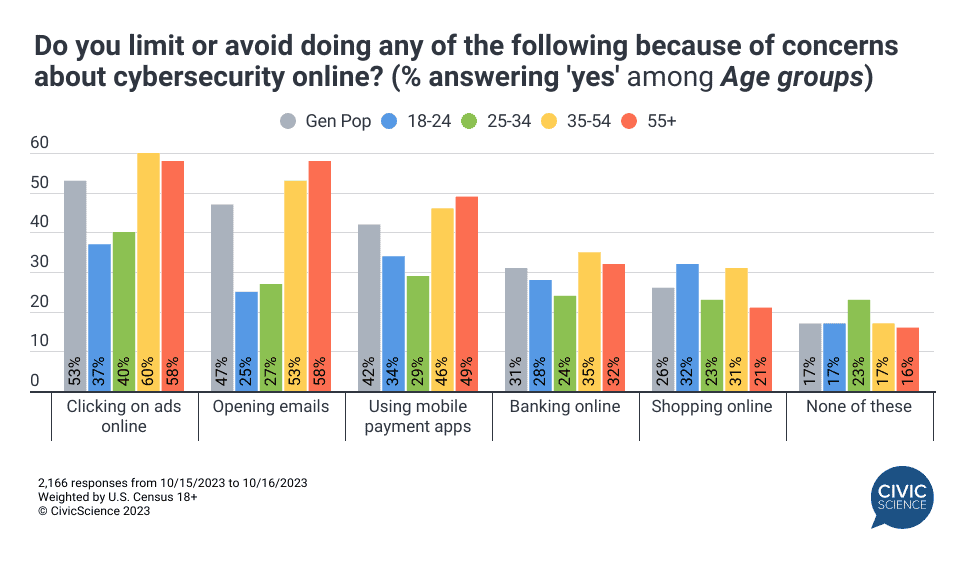
Gamers are much more likely to sign up for Xbox Game Pass, now that Microsoft’s Activision Blizzard deal is in the books. Now that regulators have finally approved the Microsoft-Activision marriage, Xbox subscribers can now access some of the most popular titles in gaming, like “Call of Duty” and “World of Warcraft.” In the wake of the news, interest in Xbox’s subscription service increased dramatically – even compared to when we first asked about the potential acquisition a year ago. The biggest acquisition since Time Warner bought AOL, this one is certain to be much, much more successful.
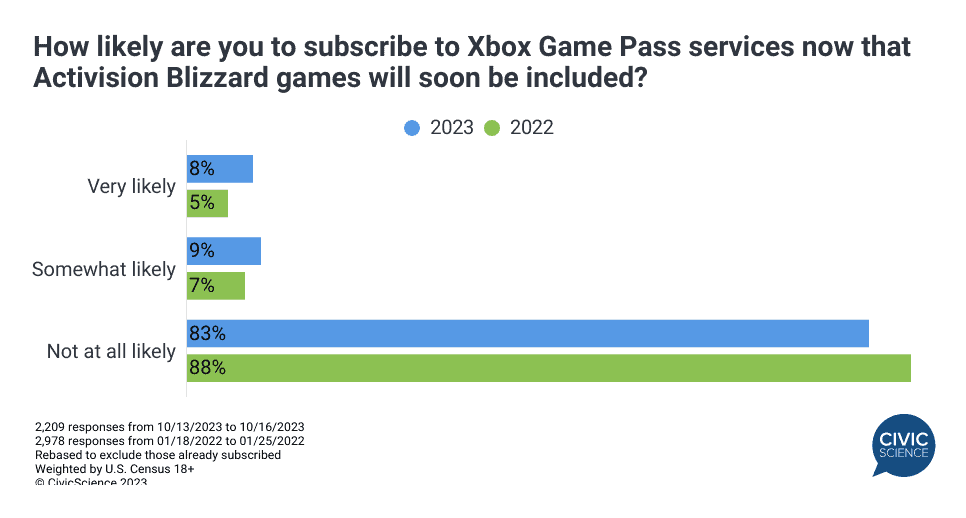
More awesomeness from the InsightStore™ this week:
- Promotions could bring people back to malls this holiday season;
- The Rite-Aid bankruptcy could be a boon for the prescription delivery movement;
- People who vape are way more likely to be vegetarians, and 4 other surprising factoids;
- The new Domino’s rewards program and Uber Eats partnership should lure competitive customers.
The most popular questions this week:
- Which is your absolute favorite among the following video game genres?
- Do you mostly look at your teen years in a positive or negative light?
- How would you rank your math skills?
- Do you typically sleep in the same bed with your pet?
- To what extent do you believe in the idea of karma?
- How closely do you track your subscription services?
Answer Key: Sports games; Very positive; Dead last in my company; Yes, both of them; Not really; I just found out that we were paying for Disney+ twice (through Hulu and Verizon), so yeah, not closely enough.
Hoping you’re well.
JD
Want to see weekly insights from the What We’re Seeing through the lens of your customers? Learn how here.
Not on the list to receive this email every Saturday? Sign up here.








